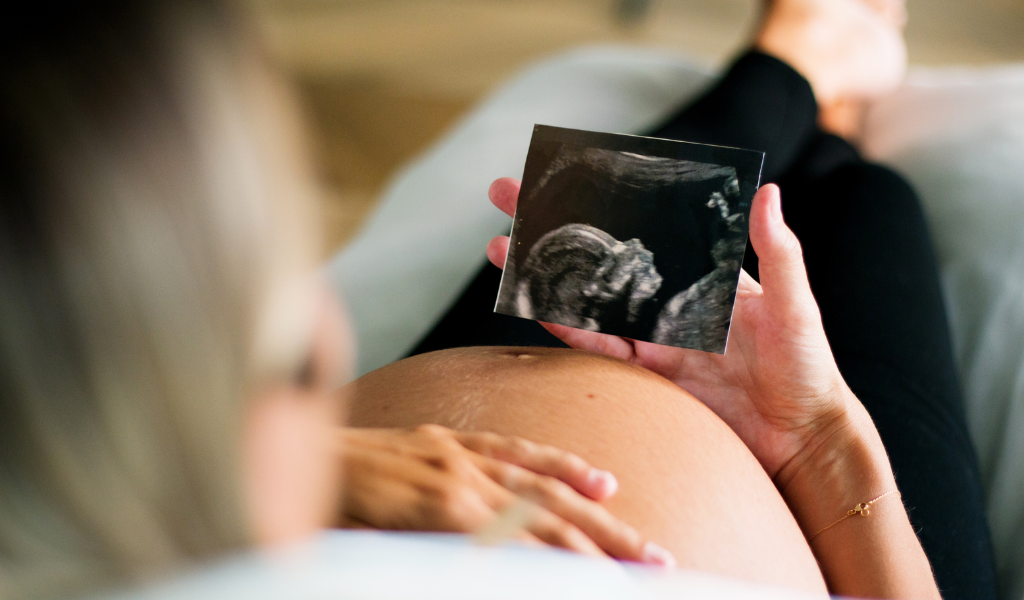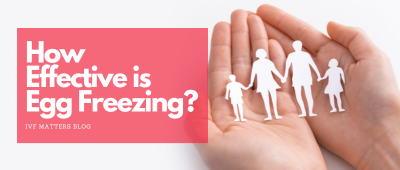Deciding when to start a family can be a tough decision. After all, there are so many factors to weigh up — whether it be your medical history, financial commitments, lifestyle choices, biological clock or everything in between.

Now, however, and largely thanks to recent advances in technology, egg freezing has allowed more and more women to take control over their fertility, allowing them to preserve their eggs for future use.
This, in turn, has led many women to wonder whether there is an ideal time to consider freezing their eggs, which is likely why you are here reading this article right now.
In this article, we will be discussing this point and more, detailing both what the egg freezing process involves and why it’s so beneficial.
How does egg freezing work?
First things first, let’s take a look at what egg freezing actually is.
Otherwise known as oocyte cryopreservation, egg freezing refers to the process of extracting a woman's eggs, freezing them and storing them until she is ready to try and have a baby.
The whole process takes approximately 14 days in total, starting with an initial consultation at a reputable fertility clinic.
At this stage, a fertility specialist will go through and ask about your medical history, before giving you a chance to discuss any questions or concerns you are having. Then, they will conduct several fertility tests to assess your reproductive health.
Once they deem you as a suitable candidate for the egg freezing procedure, they will then give you specific fertility medications to stimulate a process known as ovarian stimulation, designed to produce as many matured eggs as possible.
After some time has passed and your eggs have matured, your fertility specialist will then set up an appointment to conduct the retrieval procedure.
Once they have removed the eggs, they will then be processed and moved to a secure freezer, where they will be stored until you are ready to use them for fertility purposes.
You can find out more about what’s involved in each step of the procedure in our article on the egg freezing process.

Why do women freeze their eggs?
Women may choose to freeze their eggs for various personal reasons.
Generally speaking, however, most women do it to preserve their fertility for later life, using younger, healthier eggs that are more likely to help them get pregnant when they’re ready. This then gives them the freedom to focus on other aspects of life, such as their education, career or personal growth, with added flexibility over when to start a family.
Certain medical conditions can also play a significant role in someone’s decision to freeze their eggs.
Undergoing treatments like chemotherapy, hysterectomies or radiotherapy, for example, can have a drastic impact on your fertility. Therefore, being able to freeze your eggs before starting these procedures could help you get pregnant after you have recovered.
What is the best age for egg freezing?
The ideal age to freeze your eggs varies from woman to woman. But, since the quality and quantity of eggs in your ovaries will decline as you age, egg freezing is generally recommended for those in their 20s and early 30s.
This is because, when you come to use your eggs during fertility treatments like in vitro fertilisation (IVF), the higher the quality and viability of the egg is, the higher the likelihood will be of you getting pregnant.
Deciding when to freeze your eggs ultimately comes down to three things: your age, your health and your personal circumstances. If you are aged over 30 and plan on having children within the next year, for example, egg freezing may not be the best fertility treatment option for you.
If, on the other hand, you are in your mid-20s, in good health and know you want to have a family in the future but want to prioritise travelling or settling into your career first, egg freezing could be a fantastic option.

What is the likelihood of a successful pregnancy from frozen eggs?
The likelihood of you getting pregnant from your frozen eggs will largely depend on the age at which they were frozen.
If you froze them earlier on in your life, during your 20s when your eggs were younger and healthier, you will have a higher chance of a successful pregnancy than someone who froze them in their 30s or 40s.
Currently, the success rate for births from frozen eggs (not donors) is approximately 18% per treatment cycle, according to HFEA data, but this number is only increasing year on year.
However, it’s important to note that age isn’t the only factor that impacts the likelihood of a successful pregnancy.
The expertise of the fertility clinic you use, the actual processing and storage of your eggs, and your overall fertility profile can all also have a huge impact on your ability to become pregnant.
Therefore, before having your eggs frozen or starting any type of fertility treatment, you should try to maintain a healthy and active lifestyle. That way, you will keep your reproductive health in as good working order as possible, which can play a huge part both in advance of and during your pregnancy.
Get in touch today
If you are considering freezing your eggs but would like to find out more information about the process, book a free advisory call with a member of our team.
Here at IVF Matters, our fertility specialists can provide you with a personalised assessment to determine your fertility health, while also answering any questions you might have about starting your journey to parenthood.
Sources
- https://www.ivfmatters.co.uk/pages/egg-freezing
- https://www.hfea.gov.uk/treatments/fertility-preservation/egg-freezing/
- https://www.newcastle-hospitals.nhs.uk/services/fertility-treatment/embryo-freezing/
- https://www.hfea.gov.uk/about-us/news-and-press-releases/2018-news-and-press-releases/press-release-age-is-the-key-factor-for-egg-freezing-success-says-new-hfea-report-as-overall-treatment-numbers-remain-low/






